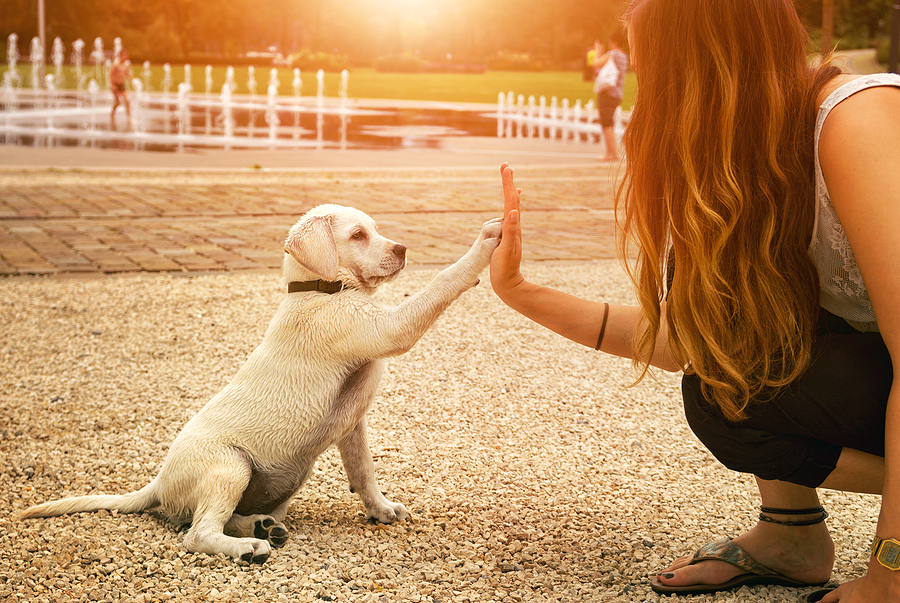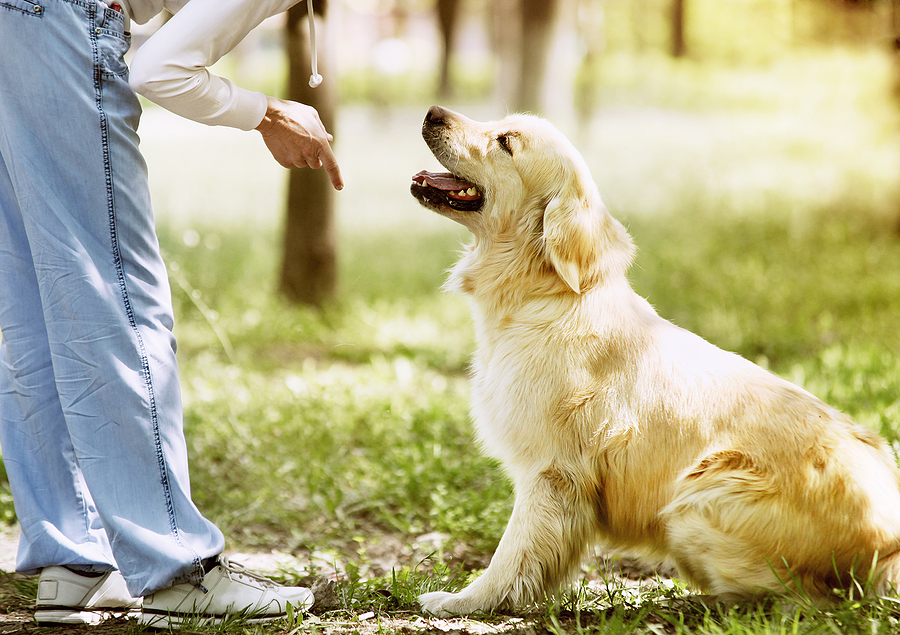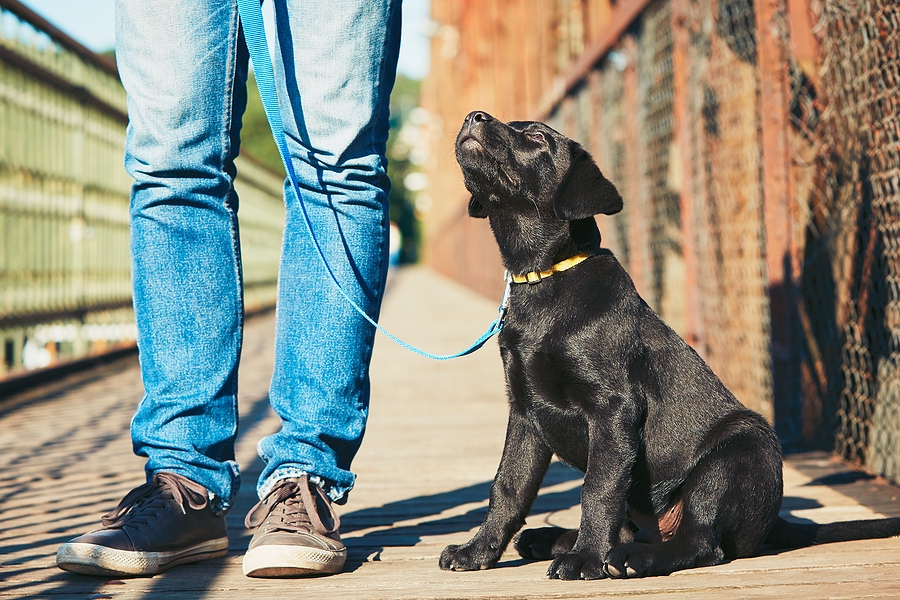Training is crucial for dogs of all ages as it fosters obedience, improves behavior, and enhances the bond between a pet and its owner. However, the approach to training can differ significantly when it comes to puppy vs dog training. While the underlying principles of consistency, patience, and positive reinforcement remain the same, the specific techniques and expectations will vary. Let’s examine the distinctions between puppy and dog training, helping you to understand the tailored approaches required for each to ensure effective learning and development.
Puppy Training
Puppy training is about laying a solid foundation for good behavior and ensuring puppies grow into well-adjusted adult dogs. Puppies are essentially blank slates, ready to absorb and learn from their experiences, which makes this period critical for their development.

Basic Commands and Socialization
Training for puppies starts with basic commands like ‘sit’, ‘stay’, ‘come’, and ‘heel’. Socialization is also a key component, as early exposure to various people, other animals, and environments is crucial for developing a confident and sociable adult dog.
House Training
A significant part of puppy training involves house training, which includes teaching the puppy where and when it’s appropriate to go to the bathroom. This requires a consistent schedule, frequent opportunities to go outside, and plenty of patience.
Bite Inhibition
Puppies need to learn bite inhibition to understand how to moderate the strength of their bite during play. This is important for safe interaction with other dogs and people, especially children.
Environment Familiarization
Puppies also need to get used to different sights, sounds, and sensations in their environment to prevent fearfulness. This includes handling by humans, exposure to household noises, and varied physical environments.
Dog Training
Training an adult dog has its unique set of challenges and benefits. Adult dogs often bring previous experiences—both good and bad—to their training sessions. They may have ingrained habits that can be difficult to change, which requires a patient and consistent approach to retraining.

Focused Training Sessions
Adult dog training often needs more focused and shorter training sessions. Mature dogs have a longer attention span than puppies, allowing for more intensive and detailed tasks during each session. However, it’s essential to keep these sessions engaging and rewarding to maintain the dog’s interest and motivation.
Behavior Correction
Dog training frequently centers around correcting or modifying existing behaviors that may be problematic, such as jumping on guests, pulling on the leash, or reactive barking. This involves understanding the root of the behavior and using targeted strategies to address these issues.
Advanced Commands and Skills
Adult dogs are typically ready to progress to more complex commands and training scenarios earlier than puppies. This includes advanced obedience, agility training, and learning specific tasks or roles, which can provide mental stimulation and physical exercise that are vital for a dog’s well-being.
Socialization Reintroduction
For adult dogs that may not have been properly socialized as puppies, reintroducing socialization can be crucial. This involves controlled exposure to various environments, animals, and people to help the dog become more comfortable and less anxious in different situations.
Puppy vs Dog Training – The Benefits of Professional Training
Regardless of age, professional dog training can provide numerous benefits. Trainers have the expertise to address specific behavioral issues, can accelerate the learning process, and often have insights that are not readily apparent to even the most dedicated pet owner. Training under the guidance of a professional can ensure that both puppies and adult dogs receive the support they need to learn effectively.
For puppies, a professional trainer can help lay down a robust foundation of basic commands and proper behavior, while for adult dogs, trainers can work on correcting behaviors that might have been part of the dog’s life for years. Professional training can also adapt to the specific personality and learning style of each dog, making the process more efficient and enjoyable for both the dog and the owner.

Puppy vs dog training – Beau’s K9 Academy has got you covered either way.
We understand the nuances of both puppy and dog training. Our experienced trainers are skilled in techniques suitable for any age and breed, ensuring that your dog receives the appropriate training for its developmental stage and individual needs. We offer a range of programs designed to enhance the bond between you and your pet while addressing any behavioral concerns. From basic obedience to more advanced skills, Beau’s K9 Academy provides the highest quality training for your canine companion. Contact us today!
Puppy vs Dog Training FAQs
What are the key differences between puppy and adult dog training?
Puppy training focuses on foundational skills like basic commands and socialization, while adult dog training often involves correcting established behaviors and learning more complex commands.
Is training a puppy easier than training an adult dog?
Training a puppy may be simpler because they have fewer ingrained habits, but they require more patience due to their shorter attention spans. Adult dogs can learn more complex skills more quickly.
Why is socialization important in training puppies compared to adult dogs?
Early socialization in puppies helps prevent future behavioral issues by exposing them to various environments and beings. For adult dogs, especially those lacking early socialization, reintroduction must be handled more carefully to avoid stress.
Can you correct old behaviors in adult dogs through training?
Yes, adult dogs can unlearn old behaviors with consistent and strategic training that addresses the root cause of their actions.
What benefits does professional training offer for both puppies and adult dogs?
Professional trainers provide expert guidance tailored to the dog’s age and specific needs, accelerating the learning process, and ensuring effective behavior management.
How does Beau’s K9 Academy cater to the different training needs of puppies and adult dogs?
Beau’s K9 Academy offers specialized programs for puppies focusing on basic skills and socialization while adult dog training targets behavior correction and advanced commands, all tailored to each dog’s specific developmental stage and needs.

